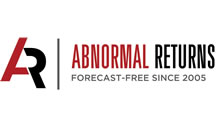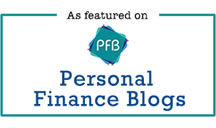Complacency. An unfortunate affliction or our default state of being?
I skimmed through yet another email announcing changes to opaque terms and conditions. Attention wandering, I was bored before I had even started reading. But mid-scroll, I stopped and read carefully.
The one feature that had originally caught my attention and won my business was being discontinued.
Instantly transforming the offering from best-in-class to distant also-ran. A classic bait and switch.
The product was a credit card.
Charging no fees for purchases denominated in other currencies.
Levying no fees or interest on cash withdrawals made at overseas automatic teller machines.
Performing foreign currency conversions at the wholesale rate.
In short, it had been a credit card that performed abroad just like the one I used at home.
Until now.
Once, that mix of features had been unique.
Compelling enough to seize my attention and hold it long enough that I subjected myself to all the friction and hassle involved in opening a new financial services product.
Today, none of those features is particularly novel or exciting. Numerous providers offer functionally equivalent competing products. Bank fees and uncompetitive exchange rates relegated to a mere idiot tax in the universal migration toward everything of value eventually becoming free.
I’ll be honest, the last time I paid even the slightest bit of attention to “travel” cards was when I opened this credit card many years ago. The moment I had one, I promptly lost all interest. Financial services products are not exciting, a sporadic and unpleasant necessity like visiting the dentist or paying taxes.
It was filed away with my passports. Dusted off for the occasional long-distance gift purchase, bill payment on my far-flung property empire, or (rarely during covid times) an actual holiday abroad.
The decision about whether to keep or close the credit card was automatic. No longer fit for purpose.
There was a different decision to be made about whether I still needed a travel card at all? Probably.
I sat down to do the research. Where were the best deals? Who offered the best product?
But predictably I started to procrastinate. Researching financial services products is almost as uninteresting as opening them!
Instead, I cracked open my trusting personal finance management software and took a long overdue scroll through the list of financial products I already owned. Bank accounts. Brokerage accounts. Credit cards. Flexible lines of credit. Inflexible fixed-term mortgages. Insurance, in a multitude of flavours.
How many were still best-in-class?
How many were still fit for purpose?
How many were still required at all?
I had long used a rewards credit card offered by a large retailer. In the beginning, the payout ratio was decent. A year’s worth of household spending had comfortably yielded store credit sufficient to pay for Christmas dinner with all the trimmings and feed the Lego addiction that afflicts my children.
Today, the payout ratio was little more than rounding error. Better than nothing, but not by much.
These days it rarely gets exercised, superseded by a cashback debit card with a much higher payout.
Financial service providers rely on apathy for customer retention because it works. I had been disgruntled by the regular payout ratio reductions, but not enough to do more than complain about it. The short-term friction and hassle involved in change seemingly outweighing the potential long-term benefits. Complacency wins again!
So now I had two credit cards that I either didn’t need or was unhappy with the features offered.
Thinking about that cashback debit card caused me to reflect on my bank accounts.
Each had a specific purpose in my personal finance setup when originally opened. The system had redundancy baked in, much like clothing carried while backpacking: one to wash and one to wear.
Redundancy provides options and resiliency when life happens. An account gets frozen. A card stopped. Identify compromised. A provider goes broke.
Never concentrate risk in just one account. One card. One provider. Single points of failure all.
My primary current account I have held since I first arrived in the United Kingdom long ago. It wasn’t chosen because the account was fancy, nor was the provider renowned for brilliant service.
Quite the opposite in fact, they were the only institution with sufficiently lax know-your-customer procedures to offer banking services to someone fresh off the plane. A class of customers who in the moment are homeless, unemployed, and don’t have a domestic credit history.
The account was fee-free. Offering the essentials back then: a cheque book and debit card. Later, internet banking would join the mix.
I haven’t kept the account out of any particular sense of loyalty or gratitude. Current accounts are a commodity service, with little more than branding to distinguish between the offerings. Over the years it has remained fee-free and good enough, providing everything remained on script. That becomes less true on the rare occasions I have needed to venture into one of the diminishing number of bank branches to speak to one of the diminishing number of humans about a problem that is important to me but they have little interest in helping resolve.
That cashback debit card is linked to a different current account, offered by a different provider. A time-bound promotion. Almost certainly a loss leader, aimed at helping a large multinational muscle into a new (to them) domestic market. Also fee-free.
Yet looking through my list of financial products I had a couple of others that could and probably should be closed. Opened for the purpose of spreading money across banking licenses on those rare occasions I was sitting on a mountain of cash in the run-up to property purchases or paying tax bills. Typically selected based on being fee-free and then whatever promotional inducement the provider was offering on the day. Switching bonuses. Vouchers. Event tickets or electronic goods. You know the drill.
Mortgages were another area that warranted some attention.
The largest recently refinanced, shifted to a long term fixed-rate interest-only offering that sought to preserve the historically low rate conditions for a while longer yet.
A couple of others are competitive today, but will require action before long. A quarter percent here. Half a percent there. Before long those interest rate rises add up to real money for anyone who has complacently let themselves drift onto a variable rate.
ISAs and taxable brokerage accounts took a bit more effort. The first groups of accounts to incur fees.
Running the numbers to work out whether a portfolio had tripped the thresholds where fixed fees were more beneficial than holdings based alternatives.
Doing the sums to reassess if the fee basis still made sense, as my investments inexorably drifted towards liquid ETFs and away from less liquid open-ended investment company equivalents. Checking the small print to observe how much I was being screwed by on foreign currency conversions when investing in international markets, a cost often more material than the widely compared annual fees and trading commissions.
Then stopping to consider my overall investment allocations to assess whether combining or splitting brokerage accounts might not achieve a more cost-effective outcome.
Finally, looking at pension accounts before shaking my head and deciding it was all too hard. Decades-old employer pensions that remained trapped, ineligible or unable to be consolidated or transferred to less expensive and better-performing alternatives. I went as far as confirming I hadn’t been automatically enrolled in any more insurance products within those pension wrappers. It is scandalous that this occurs at all. Disappointing that it still occurs as often.
After half an hour I lost the will to live. My interest waned. My enthusiasm vanished.
I had consolidated a couple of accounts.
Closed a couple more.
Earmarked my credit cards for replacement, subject to doing a bit more research once the high tide of my complacency ebbs once more.
My private life insurance had gotten expensive. Travel insurance had expired.
A mortgage needed refinancing.
This exercise produced a reasonable length “to do” list. A financial spring clean that was both late and long overdue.
Yet as I chipped away at it, my finances got simpler. My recurring costs reduced. Easier than renovating an investment property. An outcome more certain than achieving stock-picking outperformance.
A trick that can only be performed once in a while to achieve such tangible results. But let’s be honest, complacency wins out far more often than many of us will be comfortable admitting. Our default state of being.
Which is fine, as if past performance is any guide, it will be some time before I am jolted into going around this loop again!






Gentleman's Family Finances 8 June 2022
First of all – I can understand every word you have written and empathise.
I have only just started the Lego accumulation phase of my parenting life and it is an expensive hobby.
Everyone’s financial situation is different but I’m sure that a lot of readers are in the same boat.
One pillar of money saving expertish and financial independence is to rate hop around to get the best switching offer, regular saver, cashback, airmiles, free shares and 0% balance transfer.
You can end up with a complete mess of accounts and inevitably (for me anyway) you lose interest in making £50 with only an hour’s work and 12 months of your mental real estate by means of cost.
There’s no one way to do it – but I think that working out what you need and choosing the best. Sign up for those intro offers if they are worth it (long term) and keep a reminder of she. You need to cancel them and you’ll be fine.
And for what it’s worth, I’m coming up 23 years with my current account. They had FX free overseas spending, now not so much. But then again, I’m overseas not so much either and have another bank and card for that.
{in·deed·a·bly} 9 June 2022 — Post author
Thanks GFF.
I agree that requirements should lead product selection, inducements are just a potential factor in distinguishing between otherwise equivalent providers.
Enjoy playing with the Legos!
Pro tip: you can buy second hand Lego by the kilogram on gumtree or ebay. Works well for kids with great imaginations who don’t much like following instructions. Less so for kids who want the toy to look the same as the box in the shop.
bsdb3 8 June 2022
The other big one was auto-renewals, where insurance companies could wack up the premium and a % of customers wouldn’t shop around and end up paying significantly more than a new customer would. I think that practice has now been stopped but presumably was lucrative. Out of interest did your foreign-currency credit card work? I took one out pre-covid for a trip on the advice of MoneySavingExpert and faithfully followed the advice on choosing whether to do the transaction in local currency, but still got hit with fees.
{in·deed·a·bly} 8 June 2022 — Post author
Thanks bsdb3. That insurance premium racket lives on, is the default behaviour in fact. Money gets invested in attracting new business rather than retaining existing business, as the former is harder than the latter and remunerated accordingly.
Shopping around for building, contents, or travel insurance is relatively easy. Life, health, and pet insurance less so particularly when pre-existing conditions start to come into play.
To you travel card question, yes it worked as advertised. Some providers I’ve looked into advertise “overseas” but the small print says the fee free offering only covers some of Europe.
David Andrews 10 June 2022
We fight one battle at a time. For as long as I can remember I’ve been a bit of a “rate tart”. Churning through multiple financial products for a sign up bonus, refer a friend, free gift extended 0% balance transfer with no fee etc.
As time has progressed the returns have diminished so the returns often don’t justify the expended effort. However, I still do much of the financial acrobatics as I derive some pleasure from extracting returns from money borrowed at 0% from one institution and then invested at a better return with the same or another financial institution.
I’m now approaching the point where a couple of 0% deals are expiring so I better get busy refinancing them or paying them off.
{in·deed·a·bly} 10 June 2022 — Post author
Thanks David. If it makes you happy, then it is good.
FI-FireFighter 10 June 2022
This has been on my to do list for some time.
I wish I had done as you have and have all the info in one place, I am old and still use notebooks!
But I have just started a spread sheet and begun recording all the salient info, my driver not being to ease my life ( which it will), but to make it easier for the relevant family members who will need it when I’m not here anymore.
My plan now is to review each account / product – continue/change/cancel as appropriate and update the spreadsheet.
I must remember to keep it up to date 🙂
{in·deed·a·bly} 10 June 2022 — Post author
Thanks FI-FireFighter.
The old “death list“. Not much fun to think about, but is something your next of kin will sing your praises for having produced when the time comes. As you rightly observe, it isn’t a “one and done” effort, but requires curation each time there is a material change. Is a good one to link with to an annual event, like preparing your taxes. Doesn’t mean it’ll get done of course, but you’ll feel guilty about not doing it then!
Donna 14 June 2022
Tidying up finances is also worth doing, if only to check that all still works as intended. On this topic: does anyone know of an easy to use software to do the tax return? I have been using the free HMRC one but my financial matters have become more complex of late with the loss of the personal allowance.
{in·deed·a·bly} 16 June 2022 — Post author
Thanks Donna.
I can’t vouch for any tax software, but a website calculator that may be useful is ListenToTaxMan.com.
Dividend Power 21 June 2022
Most people own way too many financial products. Maybe simplifying is best.
{in·deed·a·bly} 21 June 2022 — Post author
You’re probably right Dividend Power, thanks for visiting.